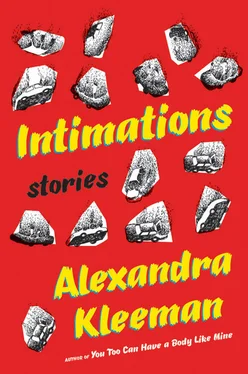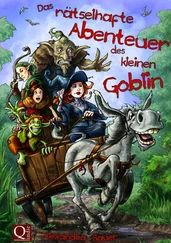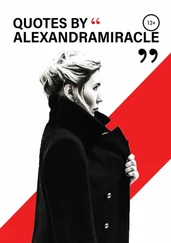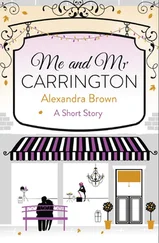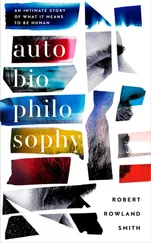“Are you looking for these?” she demanded.
“Ah, no, sorry,” he said. He paused. “It’s just, I think I know you.” He had a look on his face like he was waiting for her to complete a sentence.
“From where?” Karen asked. She looked more closely at his whole person. He wore a white button-down shirt. She had always had trouble recognizing people she knew when they dressed up for work.
He named the college in Connecticut that she had gone to. He had been a film major — the film program had changed since he’d gone there, he told her, it used to deal in concrete skills, the mechanics of shooting and editing a film. Now it was mostly a place for people who liked movies to argue over the degree to which a given movie should be liked. Sometimes they invited him back to give a talk and he thought about refusing but in the end he did it anyway because if he could, in his brief thirty-minute talk, impart any advice on how one manipulates the substance of film, he felt that it was his duty. Karen nodded. She relaxed. With his patronizing tone and his floppy brown hair, he was just the sort of person she used to listen to at parties, trying to think of intelligent, psychologically driven questions to ask while she took small sips from a cup of lukewarm beer. She had always been interested in this type of person: in their arrogance, they reminded her of the stylized, opinionated person she might have become if she had been a man.
“How about you?” he asked abruptly, as if she had vanished suddenly and just now reappeared.
“Well,” Karen said, “I’m still writing.”
“That’s great. What do you write?” He had an interested but slightly lost expression on his face.
Like before, she wrote essays. She had written profiles of well-known people — actresses and an artist who sculpted glaciers out of man-made and toxic materials. She had written a long reported article on water sanitation. She had ghostwritten a book by a comedian whose awkward jokes about foreigners were obsolete; all that was left to him was to cash in on the stories he still had of performing with people whose more robust fame persisted to this day.
As Karen spoke, she saw that her old classmate was impressed by the things she had accomplished. She felt content. Talking about work had always made her feel more like herself. He asked thoughtful questions, and she answered them, taking up almost all the space in the conversation. Something in her was eager to expand, to monopolize, to be casually selfish in the way that others often were with her. She felt free, in an old, almost-forgotten way. The happiest week of her life had been in college, the summer after junior year. She had stayed in town working at the library, where she cataloged old, miscellaneous photos according to the objects or themes they contained: Fanaticism, Rhinoceros, Etiquette. At the end of August, students who had also spent the summer in town went home to visit their families for a week or two, but Karen’s family was on vacation. So she worked unsupervised in the frosty archive, and after work she jogged five miles to an old railway bridge over the river where she dangled her feet and looked down, watching trash and swaths of plant debris pass below her, borne by the current. When her mother called, she turned her phone facedown and left it there. She would call back several hours later, once she was sure her family was all asleep.
She talked and he nodded. Talking was easy, as it used to be when she was younger and as it would be again and again in the future. This town, which was foreign, would become home, and home would slip again into foreignness. It was only in this small sliver of her life that she would be lonely, and it would pass. But then Karen noticed that he was looking at her more intently than before. She looked away, a reflex.
“Listen,” he said seriously. “I’m glad you’re not still upset, but I wanted to apologize.”
“Apologize for what?” Karen asked.
“You know, for what happened that last year of school.” He picked a box of toothpaste up from the shelf, glanced at it, and put it back down.
Karen searched her college memories earnestly for times when she had been wronged. Most of her life, she felt, had been spent alone in rooms.
“I don’t know,” she said.
“For the video. I hear it messed you up.” Karen could tell he was annoyed that she was making him reassemble the whole situation in front of her in words. “The video of you,” he said, “the one I used for class. I know it seemed exploitative, but the idea was to implicate myself. About being male in the cultural moment of the sex tape.”
“No,” Karen said. “I don’t think anything like that’s happened to me.”
He looked at her in disbelief.
“I don’t think I’m who you’re thinking of,” Karen said slowly. “When exactly were you there?”
It became clear that he had graduated several years after her: they hadn’t even overlapped. She had a young face for her age, or he had an old one. They stood in the toothpaste-and-Band-Aid aisle feeling uncomfortable. To Karen he was worse than a stranger: she knew with certainty that something weird lurked inside him. He sensed her change in attitude and stuck his hands back in his pockets. “What did you mean, ‘the cultural moment of the sex tape’?” Karen asked. “What did you think would happen if you apologized?” He didn’t seem to hear her. Already he seemed a mile away — he was closing up as she watched.
“What did you do?” Karen asked. She stared at him.
“I don’t remember,” he said unconvincingly. “It was forever ago.”
Karen suddenly realized that she hadn’t thought of her husband at all in more than an hour. Had he thought of her, even once?
The sun was setting behind the crosshatching of oak trees as Karen pushed the empty, tilting stroller toward the café as quickly as she could. The sight of the intent, ferocious-looking woman with the empty stroller alarmed the people she passed, but Karen didn’t notice. She was truly ready to go home. It seemed incredible to her that just a few hours earlier she had thought that staying in that apartment for another second could kill her. Now she knew that she would become irreparably warped if she spent another minute out here. She felt as if she were deep underwater, desperately stroking up toward the surface, toward light and air. She had no idea how far away it might be.
She’d get back to the café, thank Linda for her time, and hurry her baby home. Home was still a safe space. Everything had gone well there in the end. Puldron was alive, he hadn’t choked at all, not completely. And even if he had, the choking was just another corporeal encounter, the body articulating itself around the obstacle of that which choked it. It didn’t mean anything more than that. The word express, derived from the medieval Latin expressare, meant to “press out” or “obtain by squeezing.” The word had once been used figuratively as a term for extortion. It was possible that to cough, to choke, was the root of all speech: the urgent need to evacuate something whose internality threatened to kill you. To express yourself or be expressed by extruding words. It was just a bodily function, like sweating or throwing up. Sometimes you felt relief afterward, but there was no point in doing it unless you had to. In light of this, Lila would speak on her own time, when the small, mild experiences she was accumulating finally coalesced into something she needed to expel.
The past was just a place where uncontrolled freaks you had never consciously decided to include in your life entered it anyway and staggered around, breaking things. Compared to the gentle, competent family she had chosen, they were monsters. Even someone like Linda, seemingly so warm and lively, was an unknown. Though Karen had felt happy and connected after talking to her, when she reflected on their conversation she realized that they had spoken mostly about Linda herself, mostly in glowing terms, without learning anything concrete about her that would make her real. Since graduating from college, since getting engaged and then married, since moving to this new, worse city, Karen had always mourned her growing isolation. She had longed for the unpredictable, haphazard quality that other people had, which she had found beautiful. What seemed more beautiful to her, now, was the new being, unsullied, perfect for now in every way, whose entire existence so far had unfolded under her gaze. Even if Karen was no longer connected to the chain of exhausting events that comprised her past, she could still attach herself to a whole life, pure and complete, in the form of her innocent, silent daughter. Her daughter would live whole inside her mind, inside her memory, forever.
Читать дальше
